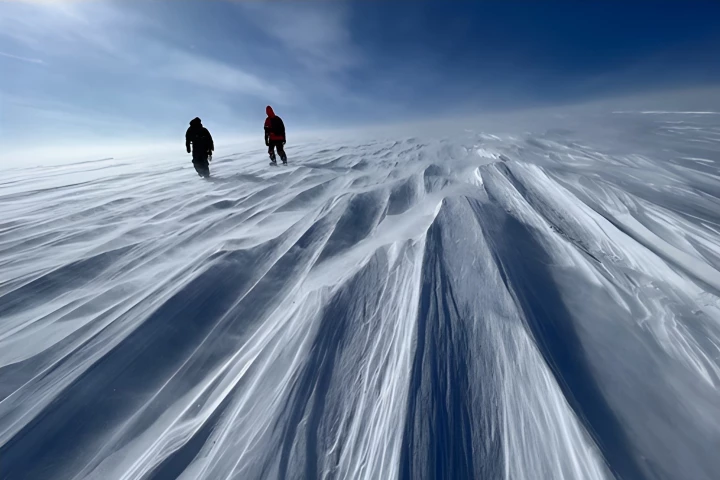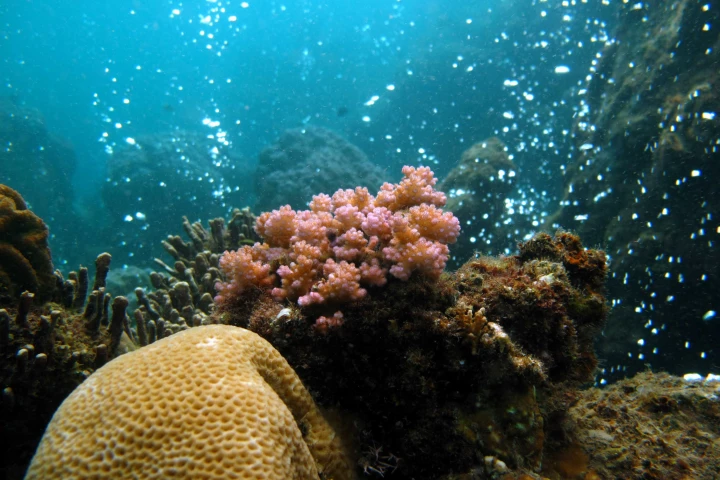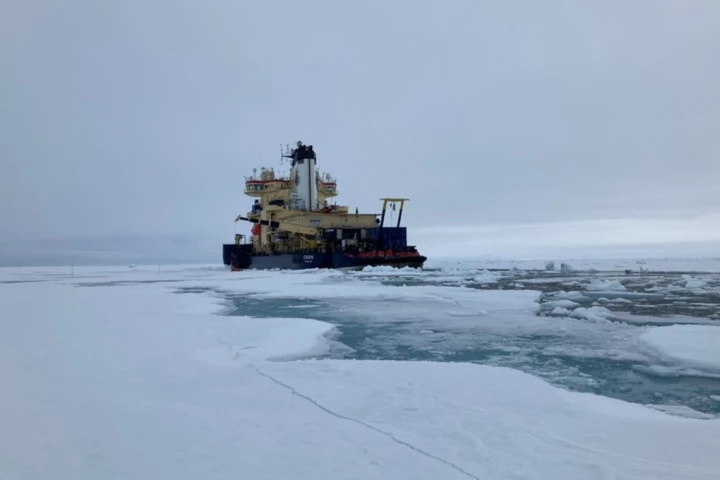Climate Crisis
-
In northwestern Greenland, researchers working on the GreenDrill project have cored through a 500-meter-thick ice dome. They found something startling: the dome completely disappeared 7,000 years ago. And it might do it again.
-
Extremophilic Tidestromia oblongifolia alters its own photosynthesis to thrive in heat that would kill most plants. By reorganizing its cells and reshaping its chloroplasts to keep producing energy, is it the future of GMO crops in climate chaos?
-
Rising outdoor temperatures not only make nights uncomfortable but also deteriorate the quality of our sleep, according to a recent USC study. Researchers looked at the effects of heat on several aspects of sleep, and the results are sobering.
-
Deep in the growth rings of Pyrenean trees lies the strongest evidence yet for what set the Black Death in motion – a direct link between a sudden climate shift and the plague’s arrival in Europe, where it killed millions between 1347 and 1353.
-
Bears look like textbook mammals, but hidden in their evolutionary history are two dramatic departures from the rules of growth and adaptation. Scientists have now unlocked when, and how, ancient bears broke the rules and hacked nature out of need.
-
On a remote reef, endless streams of bubbles rise from cracks in the seabed into the shallow water, fed by an underground volcanic system. For scientists, this phenomenon has become a kind of crystal ball, revealing the changes that await marine life.
-
Carlo Ratti Associati, an Italian architectural firm, has collaborated with US studio Höweler + Yoon and Italian construction company Cimolai on a new experiment. The result of their effort is a 400-sq-m (4,306-sq-ft) floating plaza – AquaPraça.
-
We tend to think earthquakes are predominantly driven by deep-Earth forces. But a new discovery reshapes that long-held assumption suggesting lake-level fluctuations can stir the shallow crust influencing earthquake risk and tectonic plate movement.
-
A climate report projects that the world's carbon emissions are on track to hit an all-time high this year, despite major advances in green tech and adoption of measures to curb pollution from the use of fossil fuels.
-
A new species of jellyfish, named after a samurai warrior, has been identified off the coast of Japan and its discovery is more than just a biological curiosity. It reveals ocean currents changing and marine migration routes shifting.
-
Antarctica's ice cores are like frozen diaries of Earth's past. Most continuous records go back about 800,000 years. But in a region called the Allan Hills, a special patch of blue ice holds reveals snapshots dating back as far as 6 million years.
-
Nitrogen fixation is a process where certain microbes convert nitrogen gas into ammonium, a form phytoplankton can use. This wasn't thought to happen in the Arctic, but new evidence suggests it might, offering a fresh supply of nitrogen to fuel life.
Load More











